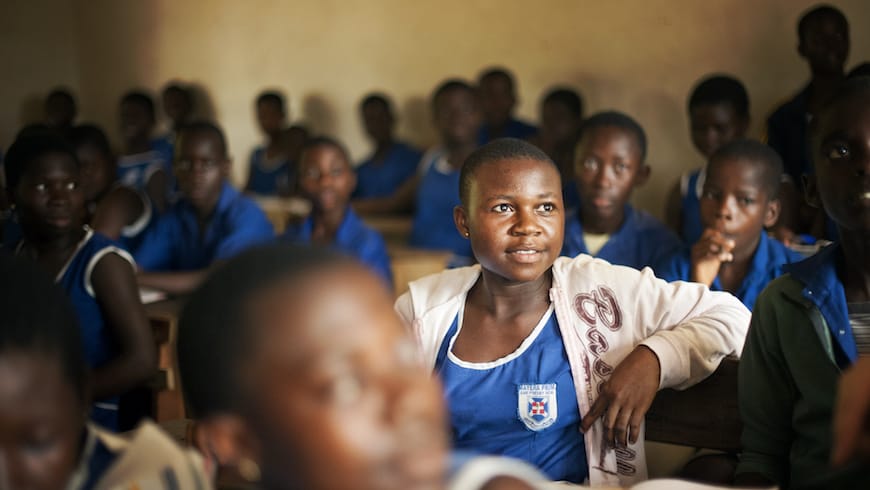SMART for Family Planning High Impact Practices: An Assessment of the Scale, Reach, Quality and Cost of Implementation in Kaduna and Lagos States, Nigeria
Description
With funding from the Bill & Melinda Gates Foundation, EVIHDAF, in partnership with FHI 360, conducted the SMART-HIPs project in Nigeria. This project aimed to evaluate the scale, scope, quality and cost of Four (4) High Impact Practices: Postabortion Family Planning (PAFP), Pharmacies and Drug Shops (PDS), Mass Media (MM), and Immediate Postpartum Family Planning (IPPFP). PAFP, PDS and IPPFP are service delivery HIPs, while MM is a social and behavioral change HIP. The evaluation covered public and private health sector in Kaduna and Lagos states over a two-year period (2022-2024).
Study aim and objectives
The goal of this assessment was two-fold: 1) generate evidence to help countries reflect on and optimize implementation of HIPs and 2) inform harmonized, globally and locally relevant measurement standards for HIPs. Specific objectives of this assessment in Nigeria were to:
- Measure the current horizontal and vertical scale of implementation of three HIPs.
- Measure the current reach of selected HIPs to sub-populations by age, urban/rural location of service delivery points, and other dimensions of equity as feasible and relevant.
- Assess the quality of implementation of selected HIPs, including policy-level intention and readiness of services to offer the intended standard of care.
- Estimate the costs of implementing and sustaining the implementation and identify the cost drivers and efficiencies for selected HIPs.
Approach
This study employed a mixed-methods, cross-sectional, observational design and took place in Lagos and Kaduna, Nigeria. These states were selected based on criteria that included representation of different contexts and funder priority geographic areas.
The HIPs covered in this assessment, as outlined in the respective HIP briefs, are defined as follows:
- Immediate Postpartum Family Planning (IPPFP - proven): Offer contraceptive counseling and services as part of facility-based childbirth care prior to discharge from the health facility.
- Pharmacies and Drug Shops (PDS – promising): Train and support pharmacies and drug shops to provide family planning information and a broad range of quality contraceptive methods.
- Postabortion Family Planning (PAFP – proven): Proactively offer voluntary contraceptive counseling and services at the same time and location where women receive facility-based postabortion care.
- Masss media (MM – proven): Use mass media channels to support healthy reproductive behaviors.
During the assessment, the following data sources were used:
- Key informant interviews (KIIs) with FP program managers and relevant SBC technical leads within health promotion units at the Ministry of Health (MOH), supplemented by a desk review of relevant national-level documents (for all HIPs).
- KIIs with program managers at managing authorities, along with a desk review of relevant records or documents (for all HIPs).
- Health facility assessments (for PAFP, IPPFP).
- A survey/structured questionnaire with FP providers (for PAFP, IPPFP).
- A survey/structured questionnaire with other FP providers (PPMVs, CPs).
- Review of SBC strategies/plans and mass media products.
- Routine service statistics (for service delivery HIPs).
- Activity-based cost data (for all HIPs).
Two dimensions of scale were considered in this assessment: vertical scale or institutionalization, which is defined as the extent of integration of each HIP into national systems, and horizontal scale or expansion, which is defined as the geographic coverage of each HIP.
Findings
In Nigeria, findings from the report were presented during in-country dissemination activities were held in August and September 2024.
Snapshot
Study area: Kaduna and Lagos States, Nigeria
Duration: 2022-2024
Consortium Partners: FHI 360; EVIHDAF
Funder: Bill and Melinda Gates Foundation
Targets: An estimation of: (1) Scale of implementation of selected HIPs; (2) Reach of selected HIPs; (3) Quality of implementation of selected HIPs; (4) Costs of HIP implementation.
Others Ongoing Projects

